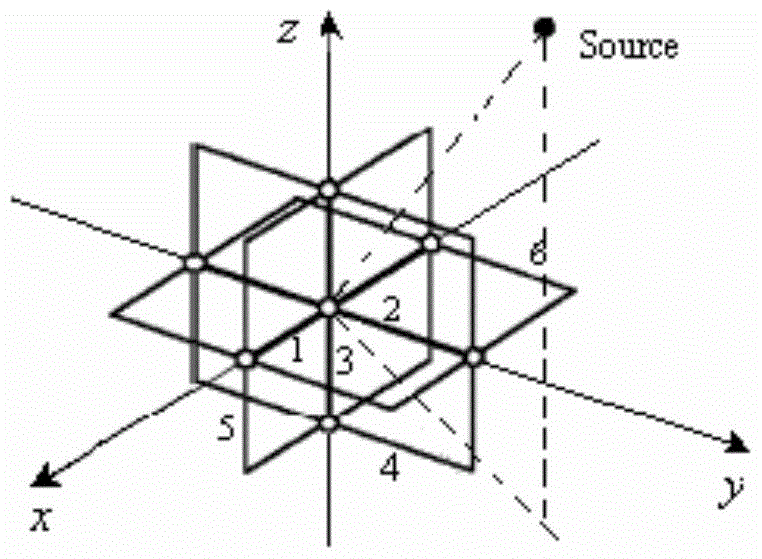An Antenna Pointing Sensing Method Based on the Correlation Information of Cooperative Source Electromagnetic Wave Spatial Structure
A space structure and antenna pointing technology, applied in direction finders using radio waves, electrical digital data processing, special data processing applications, etc., can solve problems that affect popularization and application, large volume, and complex systems, and achieve cost reduction Effect
- Summary
- Abstract
- Description
- Claims
- Application Information
AI Technical Summary
Problems solved by technology
Method used
Image
Examples
Embodiment Construction
[0024] The principle of the present invention will be described below.
[0025] The invention originates from the idea of MIMO, that is, comprehensively utilizes the synergistic effect of multiple transmitting sources and receiving elements in space, time, frequency and polarization domains to optimize system performance.
[0026] First, the electromagnetic vector sensor receiving signal model is introduced. The receiving antenna is installed on the motion platform, which is a receiving unit of the electromagnetic vector sensor. The nth electromagnetic wave signal along -u n Direction propagation, such as figure 1 As shown in (a), n=0,1,2,...,N-1. Parameters for the direction of arrival of electromagnetic waves in space Indicates that θ n represents the elevation angle, Indicates the azimuth angle, -π / 2≤θ n ≤π / 2, but figure 1 (a) vector Using the polarization ellipse descriptor (γ n , η n ) represents the polarization properties of electromagnetic waves, suc...
PUM
 Login to View More
Login to View More Abstract
Description
Claims
Application Information
 Login to View More
Login to View More - R&D
- Intellectual Property
- Life Sciences
- Materials
- Tech Scout
- Unparalleled Data Quality
- Higher Quality Content
- 60% Fewer Hallucinations
Browse by: Latest US Patents, China's latest patents, Technical Efficacy Thesaurus, Application Domain, Technology Topic, Popular Technical Reports.
© 2025 PatSnap. All rights reserved.Legal|Privacy policy|Modern Slavery Act Transparency Statement|Sitemap|About US| Contact US: help@patsnap.com



